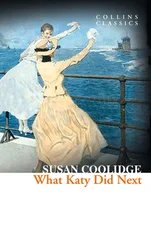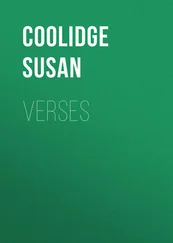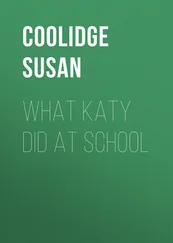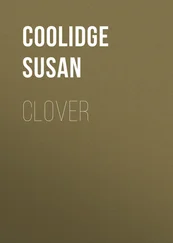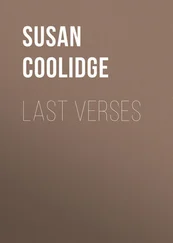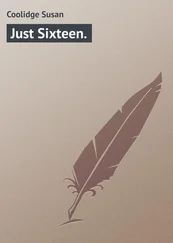Susan Coolidge - A Round Dozen
Здесь есть возможность читать онлайн «Susan Coolidge - A Round Dozen» — ознакомительный отрывок электронной книги совершенно бесплатно, а после прочтения отрывка купить полную версию. В некоторых случаях можно слушать аудио, скачать через торрент в формате fb2 и присутствует краткое содержание. Жанр: foreign_prose, на английском языке. Описание произведения, (предисловие) а так же отзывы посетителей доступны на портале библиотеки ЛибКат.
- Название:A Round Dozen
- Автор:
- Жанр:
- Год:неизвестен
- ISBN:нет данных
- Рейтинг книги:4 / 5. Голосов: 1
-
Избранное:Добавить в избранное
- Отзывы:
-
Ваша оценка:
- 80
- 1
- 2
- 3
- 4
- 5
A Round Dozen: краткое содержание, описание и аннотация
Предлагаем к чтению аннотацию, описание, краткое содержание или предисловие (зависит от того, что написал сам автор книги «A Round Dozen»). Если вы не нашли необходимую информацию о книге — напишите в комментариях, мы постараемся отыскать её.
A Round Dozen — читать онлайн ознакомительный отрывок
Ниже представлен текст книги, разбитый по страницам. Система сохранения места последней прочитанной страницы, позволяет с удобством читать онлайн бесплатно книгу «A Round Dozen», без необходимости каждый раз заново искать на чём Вы остановились. Поставьте закладку, и сможете в любой момент перейти на страницу, на которой закончили чтение.
Интервал:
Закладка:
That same afternoon Mrs. Sands went on to Philadelphia, and next morning early Helen and her father started for their journey to Vermont. It was gray, blustering weather, but neither of them cared for that. Papa was in high spirits, and full of fun as a school-boy. Their baggage comprised, besides two valises, a big hamper full of all sorts of nice things for grandmother, game and fruit and groceries, and Helen carried a flat basket in her hand, in which, wrapped in a snowy napkin, reposed one of the precious pies.
"Bless me, how raw it is! It looks as though it were going to snow," said Mr. Sands, as he came in from a walk up and down the platform of one of the little stations at which the train stopped; and five minutes later Helen, with a little scream of surprise, cried out, "Why, papa, it is snowing!" Sure enough it was, – in fine snow-flakes, which before long thickened into a heavy fall.
"It will only be a squall," Mr. Sands said; but the conductor shook his head, and remarked that up there so near the mountains there was no calculating on weather. It might stop in half an hour, or it might go on all night: no one could pretend to say beforehand which it would do.
By the time they reached Asham, their stopping-place, the ground was solid white. The wind, too, had risen, and was drifting the snow in all directions. The tavern-keeper at Asham, to whom Mr. Sands went for "a team," advised them to stay all night, but this both Helen and her father agreed was not to be thought of. It was only fourteen miles. Grandmamma was expecting them, and must not be disappointed. So, well wrapped in carriage blankets and buffalo robes, they set out in a light covered rockaway, with a stout horse, their baggage packed in behind them.
Fourteen miles may seem a very short distance or a very long one, according to circumstances. Before they had gone half-way both of them began to think it an extremely long one. The road lay up hill for the greater part of the way. Night was coming on fast, and every moment the drift grew thicker and more confusing. Mr. Sands in his secret heart repented that he had not taken the tavern-keeper's advice, and stayed at Asham. At last the horse, which had halted several times and been urged on again, came to a dead stop. Mr. Sands touched him with the whip, but he would not stir. He jumped up to see what was the matter, and found the poor animal up to his chest in snow. He had wandered from the road a little and plunged into a drift. Mr. Sands tried to turn him toward the road, when, lo, a loud and ominous crack was heard, and Helen gave a scream. One of the shafts had snapped in two.
Matters now looked serious. Mr. Sands undid the harness as fast as possible, for he feared the horse might flounder to release himself, and upset the carriage. Then he climbed into the rockaway again, and stood up to see if he could anywhere see the light of a house. No; a twinkling beam was visible farther up the hill, about a quarter of a mile away.
"Helen," he said, "I'll have to ask you to sit here quietly for ten minutes or so, while I ride on to a house which I see up there, and get some one to help us. Will you be afraid to be left alone? It's only for a little while."
"N-o; but O papa! must you go? I'm so afraid the horse will kick, or you'll tumble off."
"Never fear," – trying to laugh, – "I really must go, dear; it's our only chance of getting out of this scrape. Promise me to sit perfectly still, and on no account to leave the carriage."
It seemed much longer than ten minutes before papa got back, but there he was at last, with another man carrying a lantern, both of them white with snow up to their waists.
"All right, Helen," he cried cheerily. "Wrap all the blankets round your shoulders; I'm going to set you on the horse, and Mr. Simmons and I – this is Mr. Simmons, my dear – will walk on either side and hold you on; we'll have you up the hill in a trice."
Helen did not like it at all. The horse felt dreadfully alive under her, and jerked so, as he plunged up hill through the snow, that she was constantly afraid of tumbling off. It did not last long, however. In five minutes her father had lifted and carried her in, and set her down in a kitchen, where a woman with a candle in her hand stood waiting for them.
"This is Mrs. Simmons," he said. "She is so kind as to say that she will keep us till to-morrow morning, when perhaps the snow will have stopped, and, at all events, we shall have daylight to find our way with. Mr. Simmons and I are going back now to fetch up the luggage. The rockaway will have to take care of itself till to-morrow, I fancy."
Left alone, Helen looked curiously about her. The kitchen was a bare-looking place to her eyes. There was a stove with a fire in it, a rocking-chair covered with faded "patch," some wooden chairs, a table, and a sort of dresser with dishes. A large wheel for spinning wool stood in one of the windows. Everything was clean, but there was an air of poverty, and to Helen it seemed a most dismal place. She could not imagine how people could live and be happy there.
Mrs. Simmons herself looked very ill and tired.
"I enjoy such poor health," she explained to Helen, as she took some plates and bowls down from the dresser. "I got the ague down to Mill Hollow, where we lived, and we moved up here, hoping to get rid of it. I am some better, but it took me powerful hard yesterday, and I suppose I'll have it bad again to-morrow. Mr. Simmons, he's got behindhand somehow, and it's hard work trying to catch up in these times. What with one thing and another, both of us have felt clean discouraged this fall. Glory, fetch the milk."
"Yes, mother." And out of the buttery came a girl of about Helen's age, with a pan in her hands. She had apparently tumbled out of bed to help in the entertainment of the strangers, for her hair was flying loose, and she looked only half dressed; but she had pretty brown eyes and a bright smile.
"I feel real bad to think I'm out of tea," said Mrs. Simmons. "Father, he was calculating to get some later on, when he'd finished a job of lumber-hauling. And the hens have 'most stopped laying, too; I hain't but four eggs in the house."
"Oh, don't give us the eggs!" cried Helen; "you'll want them yourself for Thanksgiving, I'm sure."
"Thanksgiving! Dear me, so it is!" said Mrs. Simmons. "I'd forgot all about that. Not that it'd have made much difference, any way. You can't make something out of nothin', and that's about what we've come to."
"I've got a pie," cried Helen, with a sudden generous impulse, but feeling a little pang meanwhile, as she recalled her vision of putting the pie into grandmamma's own hands. But where was the pie? She recollected now, – the basket was in her lap when papa lifted her out of the carriage. It must have fallen out, and probably was now buried deep in snow.
A great stamping of boots just then announced the entrance of the two men with the valises and hamper. Mrs. Simmons renewed her apologies about the tea. Hot milk, a little fried pork, two of the eggs, and a loaf of saleratus bread were all she had to offer, but it was very welcome to the hungry travellers. There was some choice tea in grandmother's hamper, but Mr. Sands very rightly judged it better to say nothing about it just then, as it might have seemed that he and Helen were not satisfied with their supper. They ate heartily, and soon after went to bed in two chilly little lofts upstairs, where all the buffalo robes and blankets from the carriage could not quite keep them warm.
Helen lay awake a long time, thinking of her own disappointment and grandmamma's, but more still about the Simmons family. How hard and melancholy their life seemed, struggling with poverty and ague up here among the lonely hills, with no doctor near them, and no neighbors! A great sympathy and pity awoke in her heart. Her first impulse, when she roused next morning, was to hurry to the window. It was still snowing, and the drifts seemed deeper than ever! "Oh, dear!" she thought, "we shall have to stay in this forlorn place another day, I am afraid." A more generous thought followed: "If it seems so hard to me to have to spend one day here, what must it be to live here always?" And she made up her mind that, if they were forced to stay, she would do all she could to make Thanksgiving a little less forlorn than it seemed likely to be to Mrs. Simmons and Glory.
Читать дальшеИнтервал:
Закладка:
Похожие книги на «A Round Dozen»
Представляем Вашему вниманию похожие книги на «A Round Dozen» списком для выбора. Мы отобрали схожую по названию и смыслу литературу в надежде предоставить читателям больше вариантов отыскать новые, интересные, ещё непрочитанные произведения.
Обсуждение, отзывы о книге «A Round Dozen» и просто собственные мнения читателей. Оставьте ваши комментарии, напишите, что Вы думаете о произведении, его смысле или главных героях. Укажите что конкретно понравилось, а что нет, и почему Вы так считаете.


